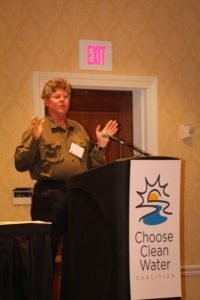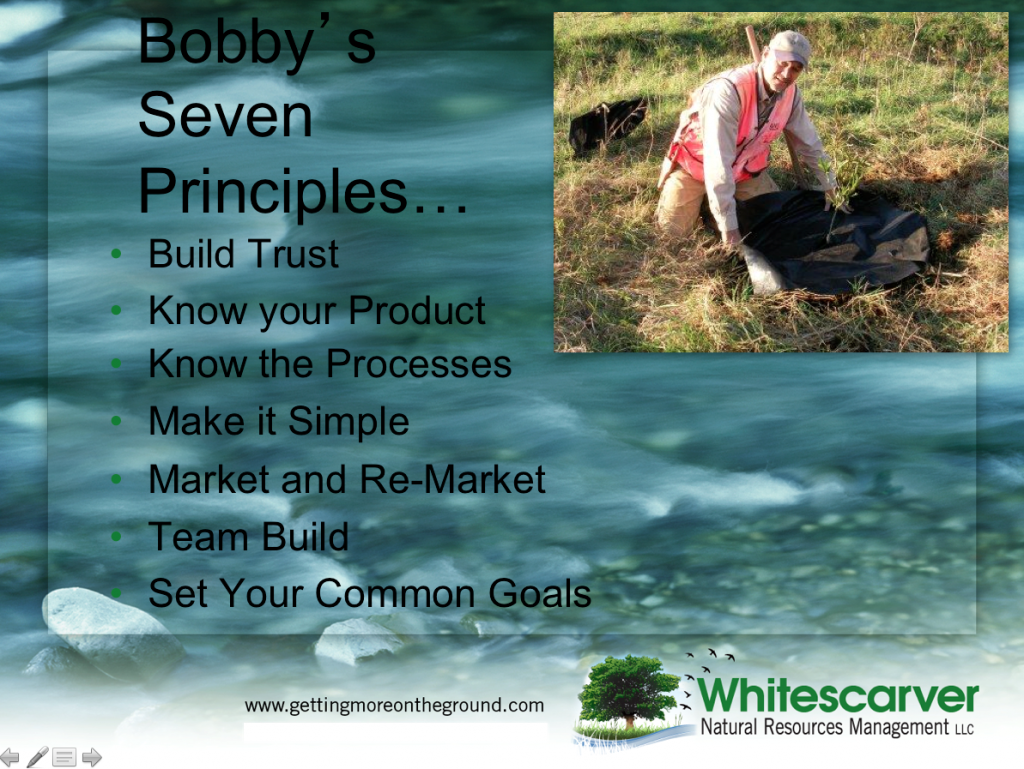Wow! That’s what I have to say about the 2014 Choose Clean Water Coalition Conference held at the Stonewall Jackson Hotel in Staunton, Virginia last week. Nearly two-hundred leaders from every non-profit organization with a mission for cleaner water in the Chesapeake Bay Watershed were in attendance including the National Fish and Wildlife Federation, the Campbell Foundation, the Chesapeake Bay Foundation, Alliance for the Chesapeake Bay, Chesapeake Legal Alliance, Southern Environmental Law Center and many local groups like our own Friends of Middle River, and the Valley Conservation Council.
I have never attended a more upbeat, engaging and educational conference in my life. Topics included: Clarifying “jurisdictional waters of the U.S.”, Fracking, Extreme Weather, Reaching out to Farmers, the Shenandoah Valley, agri-tourism and of course the Chesapeake Clean Water Blueprint. Field trips included a walking tour of Bells Lane Farm, bicycling in the George Washington National Forest and a walking tour of Mossy Creek – a restored trout stream.
Here are some notes and quotes I wrote down from some of the speakers:
- There are 35,000 new frack wells every year in the U.S.
- Each time a well is fracked they use 5.5 million gallons of water. Half of this water can never be used for human use again…ever.
- The U.S. is the world’s leader in natural gas production and we export it.
- The industrial pads and roads needed for frack wells in Pennsylvania have claimed over 9,000 acres of state forest.
- Delaware has the lowest mean elevation of any state in the country. High tide during a full moon floods their hurricane evacuation routes on a regular basis.
- Science told us what would happen to New Orleans during a category three hurricane but nobody listened.
- The current goal for riparian forest buffer installation in the Chesapeake Clean Water Blueprint is 1,200 miles per year. Our current pace is 244 miles per year.
- Food production is the number one industry in the Shenandoah Valley, in Virginia and in the Chesapeake Bay watershed. Conserving farmland is crucial for our economies and for a restored Bay.
Seems gloomy doesn’t it? But I came away uplifted because of all the positive energy from the people doing

Ivor Van Heerden, former Deputy Director of the Louisiana State University Hurricane Center, addresses the conferees. Photo by Carolyn Millard.
something about it. The NGO groups were all over these topics with science and strategies to solve the problems. Featured speakers included State Senator Emmett Hanger, EPA Administrator for Water Nancy Stoner, former Director for the Study of Publich Health Impacts of Hurricanes Ivan Van Heerden,
Dr. Jim Nations from the Center for Human Ecology and Secretary of Natural Resources for Virginia Molly Ward.
Concerned about our water? Join the coalition or one of the organizations in the Choose Clean Water Coalition today and volunteer or donate resources!
Several people asked me to put my “Seven Principles” of getting more conservation on the ground in a blog post. Here they are:








10 Comments
Leave your reply.